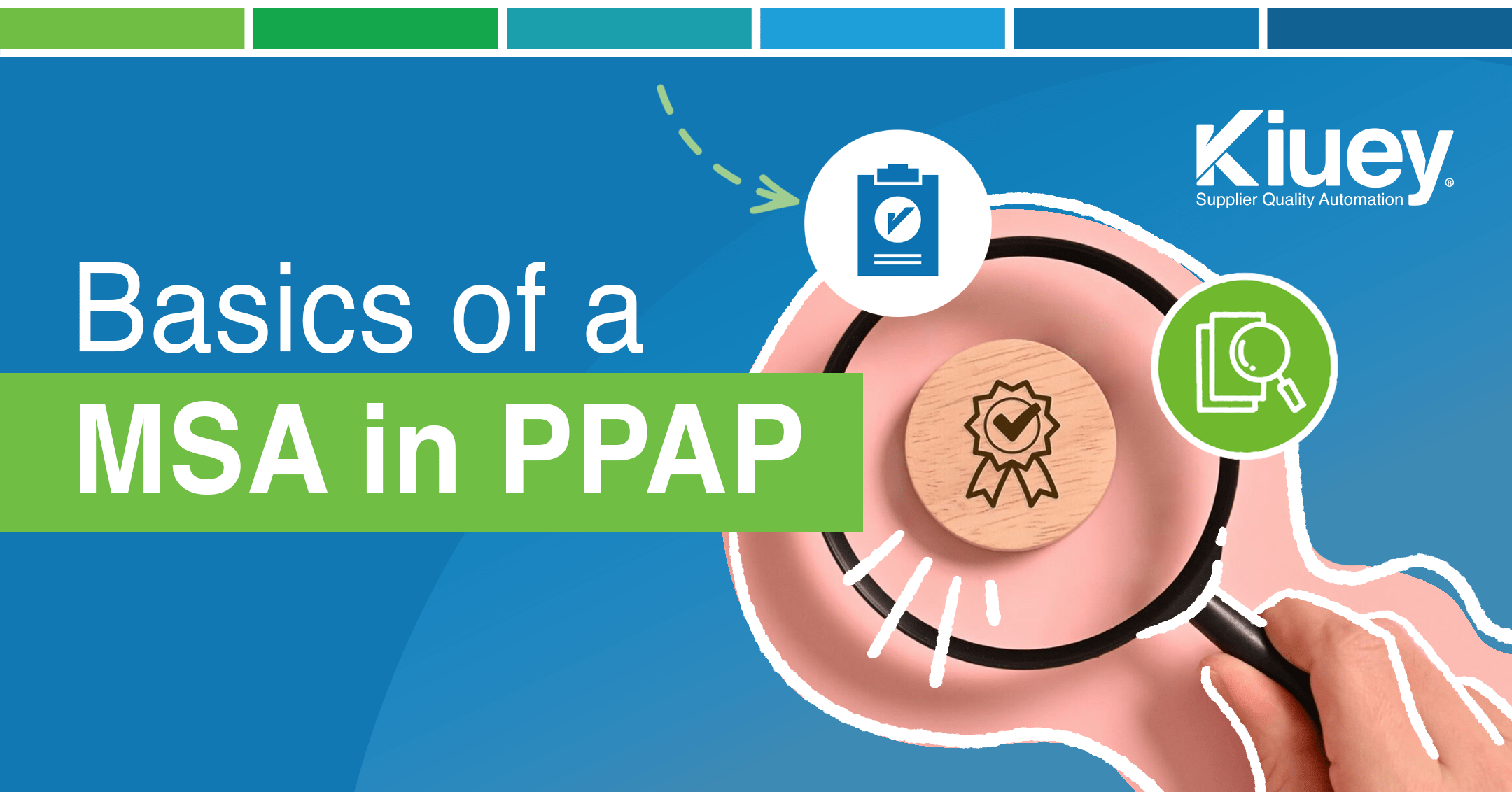
April 24, 2024
Advanced Product Quality Planning (APQP) is a systematic approach used in manufacturing to ensure the quality of new products and processes. A critical component of APQP is Measurement System Analysis (MSA), which evaluates the accuracy and precision of the measurement systems used throughout the production process. Reliable measurement data is essential for making informed decisions about product quality, and MSA helps identify any potential issues with the measurement system itself.
Why is MSA Important in APQP?
Imagine a scenario where a measurement system consistently underestimates the size of a critical component. This would lead to parts being mistakenly accepted as conforming to specifications when they are actually too small. Conversely, an overestimating system would lead to perfectly good parts being rejected. In both cases, the consequences can be significant – from product failures and safety concerns to production delays and wasted resources.
By performing MSA studies early in the APQP process, manufacturers can:
- Identify and quantify measurement error: MSA helps pinpoint the sources of variation within the measurement system, such as operator inconsistencies, gauge limitations, or environmental factors.
- Improve measurement capability: By understanding the level of error, manufacturers can determine if the measurement system is capable of distinguishing between conforming and non-conforming parts based on the product specifications.
- Reduce scrap and rework: Reliable measurement data minimizes the risk of accepting defective parts or rejecting good ones, leading to less scrap and rework.
- Enhance process control: Accurate measurements allow for effective process monitoring and adjustments, promoting consistent product quality.
- Increase customer satisfaction: Delivering high-quality products consistently builds trust and customer satisfaction.
Key concepts in MSA
The following are several key concepts form the foundation of MSA studies:
- Accuracy: This refers to how close a measurement is to the true value of the characteristic being measured. A perfectly accurate measurement system would consistently produce readings that exactly match the actual value.
- Precision: Precision reflects the repeatability and consistency of a measurement system. A precise system produces consistent readings even when repeated measurements are taken by different operators or under slightly different conditions.
- Variation: All measurement systems introduce some degree of variation in the collected data. MSA helps quantify this variation and identify its sources.
- Gauge Repeatability and Reproducibility (GR&R): This is a common MSA study used to assess the variation introduced by the gauge itself and by different operators using the gauge.
Performing an MSA Study
An MSA study typically involves several steps:
- Define the measurement objective: Identify the specific characteristic to be measured and its impact on product quality.
- Select the measurement method and equipment: Choose the appropriate tools and procedures for taking the measurements.
- Conduct the MSA experiment: This may involve taking multiple measurements of reference parts with known dimensions by different operators and under varied conditions.
Analyze the data: Statistical techniques are used to calculate measurement system parameters like bias, repeatability, and reproducibility. - Evaluate the measurement system capability: Compare the measurement system variation to the product tolerances to determine if the system is capable of reliably distinguishing good from bad parts.
- Take corrective action: If the system is not capable, identify the source of the variation and implement corrective actions to improve the measurement process.
Types of MSA Studies
There are various types of MSA studies, each with its own purpose and application:
- Gauge Repeatability and Reproducibility (GR&R): As mentioned earlier, this study assesses the combined effects of gauge variation and operator variation on the measurement process.
Attribute Gauge R&R: This study is used for go/no-go gauges or other attributes-based measurements. - Linearity Study: This study evaluates whether the measurement system responds proportionally to changes in the characteristic being measured.
- Stability Study: This study assesses the long-term stability of the measurement system over time.
Conclusion
Conclusion
Measurement System Analysis plays a vital role in ensuring the success of Advanced Product Quality Planning. By integrating MSA throughout the APQP process, manufacturers can build confidence in their measurement data, improve process control, and ultimately deliver high-quality products that meet customer expectations.
By proactively identifying and addressing measurement system issues, manufacturers can avoid costly rework, product recalls, and potential safety hazards. As the saying goes, “You can’t improve what you can’t measure,” and MSA provides the tools and techniques necessary to ensure accurate and reliable measurement, laying the foundation for consistent product quality.
Let's talk to see how PPAP Manager can help your company to save time and money.


